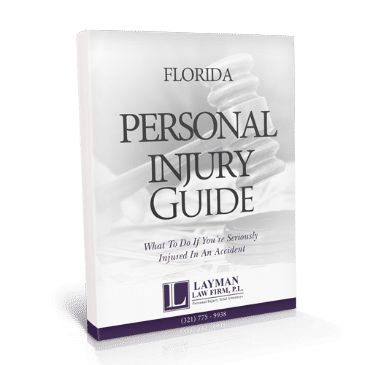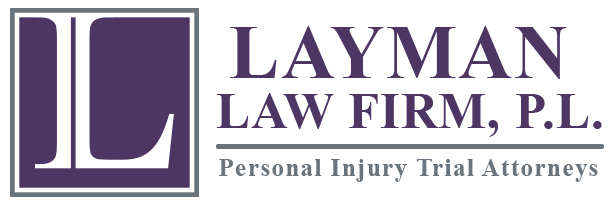If you were injured in a preventable accident and you believe that another party caused or contributed to your injuries, it is important to understand your rights as well as your legal options. Not only should the responsible party (or parties) be held accountable, but as the victim of a personal injury accident, you could be entitled to compensation for the physical injuries and emotional trauma you suffered.

What Is a Personal Injury Accident?
When someone gets injured, we typically say they were injured in an “accident.” A true accident, however, cannot be prevented and attributes blame to no one. While true accidents do occur, injuries are often the result of a preventable set of circumstances. The preventable nature of an “accident” is a defining aspect of personal injury law, formally referred to as “tort” law. Tort law is the area of law that allows one party to seek monetary compensation from another party for personal injuries and/or property damage.
There are three basic types of torts, all of which potentially allow an injured party to recover compensation from an at-fault party. The different categories of torts include:
- Strict liability. Unlike the two other categories of torts, strict liability does not look at the defendant’s mental state or intentions. Strict liability holds a defendant responsible without regard to his/her intentions nor the presence or absence of any effort to prevent harm. All that really matters is that the injured party (the Plaintiff) was injured. Common examples of strict liability personal injury cases in Florida may include product liability injuries and dog bite injuries.
- Intentional. As the name implies, an intentional tort is so named because the defendant intentionally engaged in wrongful conduct. Assault, for example, is an intentional tort. While the wrongdoer may face criminal prosecution for assault, the injured victim may also choose to pursue a personal injury lawsuit based on the intentional tort of assault.
- Negligence. Most personal injury cases are based on negligence. Negligence requires an injured party to prove four elements, including:
- Duty of care. The Plaintiff must show that the defendant owed a legal duty of care to take reasonable steps to prevent harm. By way of illustration, a motorist operating a vehicle on a public roadway owes a duty of care to others sharing the roadway.
- Breach of the duty of care. The defendant must have breached the duty of care.Driving carelessly or recklessly or while under the influence of alcohol, for instance, are examples of a breach of the duty of care.
- Causation. The breach of the duty of care must have caused Plaintiff’s injuries. In other words, if the defendant breached the duty of care, but the victim suffered injuries for an unrelated reason, the victim would not be entitled to compensation.
- Damages. The Plaintiff must have suffered damages (injuries) as a result of the defendant’s breach of the duty of care.
- Because a defendant may be held liable under any of the three theories of liability (strict liability, intentional wrongdoing, or negligence), there are a wide variety of circumstances that can lead to an actionable personal injury lawsuit. At Layman Law Firm,L. we help people injured in all types of personal injury accidents, including:
- In certain circumstances, a Plaintiff may also be entitled topunitive Unlike compensatory damages that are aimed at compensating a victim, punitive damages are intended to punish a defendant for wrongdoing.
- Finally, if you are the survivingspouse, parent or child of someone who was fatally injured in a Florida personal injury accident, you may be entitled to compensation in a wrongful death lawsuit. The Florida Wrongful Death Act governs what compensation is available; however, it may include things such as the value of future earnings, compensation for the loss of companionship and support, and funeral and burial expenses.
What Are Some Common Types of Personal Injury Accidents?
Because a defendant may be held liable under any of the three theories of liability (strict liability, intentional wrongdoing, or negligence), there are a wide variety of circumstances that can lead to an actionable personal injury lawsuit. At Layman Law Firm, we help people injured in all types of personal injury accidents, including:
- Car Accidents
- Bicycle Accidents
- Boating & Jet Ski Accidents
- Bus Accidents
- Children’s Injuries
- Motorcycle Accidents
- Pedestrian Accidents
- Pool & Drowning Accidents
- Bodily Injuries
- Slip & Fall Injuries
- Trucking Accidents
- Wrongful Death Claims
What Type of Compensation Am I Entitled to in a Melbourne Personal Injury Accident Case?
The goal in most personal injury cases is to compensate the victim for the injuries caused by the defendant’s negligence or wrongdoing. In legal terms, this compensation is referred to as “damages.” In a personal injury case, you may be entitled to both economic and non-economic damages.
Economic damages encompass the objective, typically out-of-pocket, expenses associated with your injuries and include things such as:
- Hospital and doctor bills
- Lost wages
- Rehabilitation expenses
- Repairs to your personal property (such as a vehicle)
Non-economic damages cover the more subjective, less easily quantifiable, costs of the accident and may include things such as:
- Physical pain and suffering
- Emotional trauma
- Scarring and disfigurement
In certain circumstances, a Plaintiff may also be entitled to punitive damages. Unlike compensatory damages that are aimed at compensating a victim, punitive damages are intended to punish a defendant for wrongdoing. As such, punitive damages are only awarded when it can be shown that the defendant’s actions (or inaction) were intentional or grossly negligent.
Finally, if you are the surviving parent or child or someone who was fatally injured in a Florida personal injury accident, you may be entitled to compensation in a wrongful death lawsuit. The Florida Wrongful Death Act governs what compensation is available; however, it may include things such as the value of future earnings, compensation for the loss of companionship and support, and funeral and burial expenses.
Am I Still Entitled to Compensation If I Was Partially at Fault in the Accident?
Sometimes, more than one party shares the responsibility for a personal injury accident. If you were injured in a personal injury accident in which your own negligence or wrongdoing played a role, you may still be entitled to compensation for your injuries. Like most states, Florida uses the comparative negligence doctrine when attributing fault in an accident involving multiple at-fault parties. Comparative negligence assigns a percentage of fault to each party and then adjusts damages accordingly. However, under Florida’s new modified comparative negligence standard, an injured party is barred from recovering any damages if he/she is more than 50% at fault for causing an accident. An injured party will have their recovery reduced by their own percentage of fault as long as he/she is not more than 50% at fault. For example, if you were 20 percent at fault, the amount of compensation you receive would be reduced by 20 percent. If you were 40% at fault, the amount of compensation you receive would be reduced by 40 percent. If you were 60% at fault however, you would be barred from any recovery due to the fact that you were more than 50% at fault for causing the accident.
What Should I Do Following a Melbourne Personal Injury Accident?
Because nobody plans to be injured in a personal injury accident, it can be difficult to know what to do after you are involved in one. Attending to your physical injuries and submitting to a thorough medical examination should always be your number one priority. Once you are medically cleared, however, you should seek the advice and counsel of an experienced Melbourne personal injury lawyer. At Layman Law Firm, P.L., we have dedicated our practice to seeking justice for injured victims. Let us make sure that the responsible party (or parties) are held accountable and help you recover the compensation to which you are entitled to for all your injuries.
